Don't Let's Go to the Dogs Tonight: An African Childhood
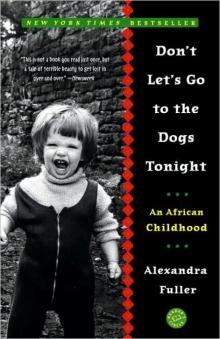

Author: Alexandra Fuller
Category: Nonfiction
Published: 2001
Series:
View: 524
Read OnlineNEW YORK TIMES BESTSELLER • ENTERTAINMENT WEEKLY’S #1 NONFICTION BOOK OF THE YEAR • A NEW YORK TIMES NOTABLE BOOK • FINALIST, GUARDIAN FIRST BOOK PRIZE
“This is not a book you read just once, but a tale of terrible beauty to get lost in over and over.”—*Newsweek
*
“By turns mischievous and openhearted, earthy and soaring . . . hair-raising, horrific, and thrilling.”—The New Yorker**
In Don’t Let’s Go to the Dogs Tonight, Alexandra Fuller remembers her African childhood with visceral authenticity. Though it is a diary of an unruly life in an often inhospitable place, it is suffused with Fuller’s endearing ability to find laughter, even when there is little to celebrate. Fuller’s debut is unsentimental and unflinching but always captivating. In wry and sometimes hilarious prose, she stares down disaster and looks back with rage and love at the life of an extraordinary family in an extraordinary time.
From 1972 to 1990, Alexandra Fuller—known to friends and family as Bobo—grew up on several farms in southern and central Africa. Her father joined up on the side of the white government in the Rhodesian civil war, and was often away fighting against the powerful black guerilla factions. Her mother, in turn, flung herself at their African life and its rugged farm work with the same passion and maniacal energy she brought to everything else. Though she loved her children, she was no hand-holder and had little tolerance for neediness. She nurtured her daughters in other ways: She taught them, by example, to be resilient and self-sufficient, to have strong wills and strong opinions, and to embrace life wholeheartedly, despite and because of difficult circumstances. And she instilled in Bobo, particularly, a love of reading and of storytelling that proved to be her salvation.
A worthy heir to Isak Dinesen and Beryl Markham, Alexandra Fuller writes poignantly about a girl becoming a woman and a writer against a backdrop of unrest, not just in her country but in her home. But Don’t Let’s Go to the Dogs Tonight is more than a survivor’s story. It is the story of one woman’s unbreakable bond with a continent and the people who inhabit it, a portrait lovingly realized and deeply felt.
Praise for Don’t Let’s Go to the Dogs Tonight
“The Africa of this beautiful book is not easy to forget. Despite, or maybe even because of, the snakes, the leopards, the malaria and the sheer craziness of its human inhabitants, often violent but pulsing with life, it seems like a fine place to grow up, at least if you are as strong, passionate, sharp and gifted as Alexandra Fuller.”—Chicago Tribune
“Owning a great story doesn’t guarantee being able to tell it well. That’s the individual mystery of talent, a gift with which Alexandra Fuller is richly blessed, and with which she illuminates her extraordinary memoir. . . . There’s flavor, aroma, humor, patience . . . and pinpoint observational acuity.”—Entertainment Weekly
“This is a joyously telling memoir that evokes Mary Karr’s The Liars’ Club as much as it does Isak Dinesen’s Out of Africa*.”—New York Daily News
“Riveting . . . [full of] humor and compassion.”—O: The Oprah Magazine
“The incredible story of an incredible childhood.”—*The Providence Journal
From the Hardcover edition.
“This is not a book you read just once, but a tale of terrible beauty to get lost in over and over.”—*Newsweek
*
“By turns mischievous and openhearted, earthy and soaring . . . hair-raising, horrific, and thrilling.”—The New Yorker**
In Don’t Let’s Go to the Dogs Tonight, Alexandra Fuller remembers her African childhood with visceral authenticity. Though it is a diary of an unruly life in an often inhospitable place, it is suffused with Fuller’s endearing ability to find laughter, even when there is little to celebrate. Fuller’s debut is unsentimental and unflinching but always captivating. In wry and sometimes hilarious prose, she stares down disaster and looks back with rage and love at the life of an extraordinary family in an extraordinary time.
From 1972 to 1990, Alexandra Fuller—known to friends and family as Bobo—grew up on several farms in southern and central Africa. Her father joined up on the side of the white government in the Rhodesian civil war, and was often away fighting against the powerful black guerilla factions. Her mother, in turn, flung herself at their African life and its rugged farm work with the same passion and maniacal energy she brought to everything else. Though she loved her children, she was no hand-holder and had little tolerance for neediness. She nurtured her daughters in other ways: She taught them, by example, to be resilient and self-sufficient, to have strong wills and strong opinions, and to embrace life wholeheartedly, despite and because of difficult circumstances. And she instilled in Bobo, particularly, a love of reading and of storytelling that proved to be her salvation.
A worthy heir to Isak Dinesen and Beryl Markham, Alexandra Fuller writes poignantly about a girl becoming a woman and a writer against a backdrop of unrest, not just in her country but in her home. But Don’t Let’s Go to the Dogs Tonight is more than a survivor’s story. It is the story of one woman’s unbreakable bond with a continent and the people who inhabit it, a portrait lovingly realized and deeply felt.
Praise for Don’t Let’s Go to the Dogs Tonight
“The Africa of this beautiful book is not easy to forget. Despite, or maybe even because of, the snakes, the leopards, the malaria and the sheer craziness of its human inhabitants, often violent but pulsing with life, it seems like a fine place to grow up, at least if you are as strong, passionate, sharp and gifted as Alexandra Fuller.”—Chicago Tribune
“Owning a great story doesn’t guarantee being able to tell it well. That’s the individual mystery of talent, a gift with which Alexandra Fuller is richly blessed, and with which she illuminates her extraordinary memoir. . . . There’s flavor, aroma, humor, patience . . . and pinpoint observational acuity.”—Entertainment Weekly
“This is a joyously telling memoir that evokes Mary Karr’s The Liars’ Club as much as it does Isak Dinesen’s Out of Africa*.”—New York Daily News
“Riveting . . . [full of] humor and compassion.”—O: The Oprah Magazine
“The incredible story of an incredible childhood.”—*The Providence Journal
From the Hardcover edition.
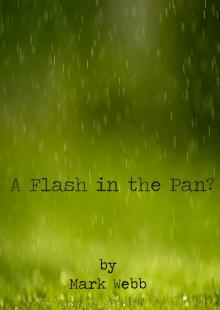 A Flash in the Pan?
A Flash in the Pan?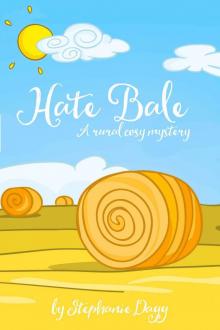 Hate Bale
Hate Bale My Chomsky Critique
My Chomsky Critique The Love Particle
The Love Particle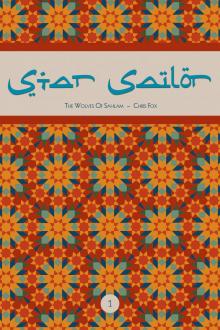 Star Sailor #1: The Wolves of Sahlam
Star Sailor #1: The Wolves of Sahlam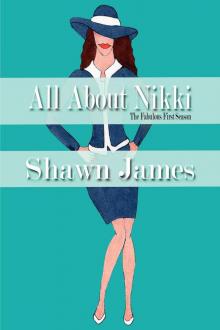 All About Nikki- The Fabulous First Season
All About Nikki- The Fabulous First Season The White Notebook
The White Notebook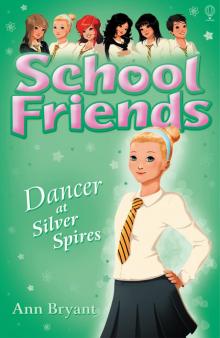 Dancer at Silver Spires
Dancer at Silver Spires